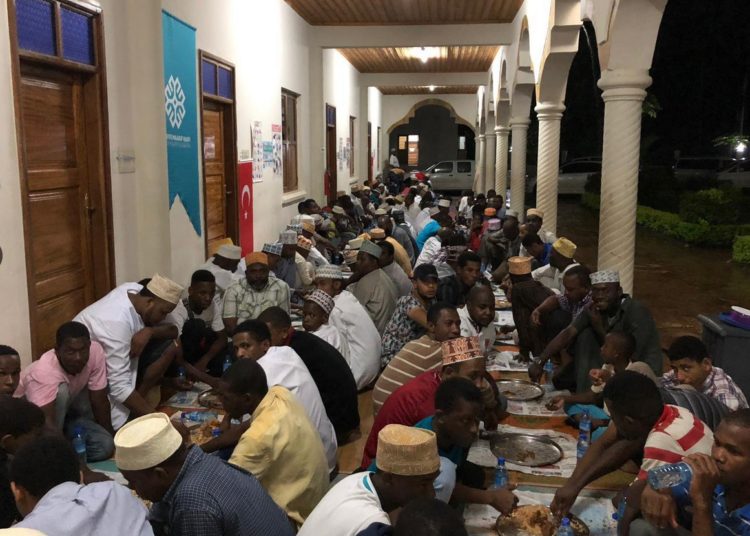Abdullah Bozkurt
The jihadist-linked Maarif Foundation, a Turkish-government-funded entity, is educating nearly 30,000 students in 34 countries at a cost of 723 million Turkish lira of taxpayers’ money.
According to official Maarif documents obtained by Nordic Monitor, the foundation runs 291 schools in 34 countries and is active in 55 countries worldwide with more schools planned to be launched. It employs 3,218 teachers, 206 of whom are Turkish nationals. The number of students enrolled in Maarif-run schools is listed as 28,703. The foundation received 723 million Turkish lira (roughly $130 million) from state coffers and has raised 19 million in cash donations since 2016, when it was first established by law.
Maarif is branded as a pet project of Turkey’s Islamist president, Recep Tayyip Erdoğan, and serves as his regime’s long arm abroad in providing educational services as part of a proselyting campaign. It also aims to raise a new generation of political Islamist activists to mobilize around Erdoğan. Video footage has emerged from Africa and other parts of the world that showed students at Maarif schools chanting and praying for Erdoğan during election campaigns in Turkey.
The documents, dated dated August 1, 2019 and signed by Maarif Foundation President Birol Akgun, revealed that only 88 teachers who were assigned to schools abroad came from Turkey’s Education Ministry, while the rest were recruited from the private sector, meaning that most teachers were hired from Islamic groups supportive of the Erdoğan regime’s cause.
The foreign staff in the schools were reportedly selected from mainly Muslim Brotherhood backgrounds in the countries where they operate.
The Erdoğan government has been trying to pressure foreign governments to hand over schools affiliated with Erdogan’s arch-foe, Fethullah Gülen, to the Maarif Foundation. Gülen has revealed that he rejected Erdoğan’s demand to tap schools operated by businesspeople aligned with his movement for use in promoting the Turkish president’s political goals, which prompted the Turkish government to establish Maarif in order to compete with and take over Gülen schools.

So far, the Erdoğan government has managed to take over 217 schools in 18 countries where the rule of law and democratic principles were problematic – Guinea, Somalia, Sudan, Cameron, Democratic Republic of the Congo, Republic of the Congo, Mali, Mauritania, Niger, Tunisia, Chad, Gabon, Ivory Coast, Equatorial Guinea, Afghanistan, Venezuela, Pakistan and Ethiopia — using bribes, political pressure, blackmail, promises of investment and trade deals.
İsmet Yılmaz, the Turkish education minister in 2016, described the initiative as proof of the Turkish state’s ambition to project greater power in the world and maintained that Turkey was following in British and American footsteps in that sense. He said the foundation would operate in places from “the Balkans to Eastern Turkistan [China’s Xinjiang Uyghur Autonomous Region] and from Somalia to Canada.” The Erdoğan government also bestowed diplomatic clout on the foundation’s chief executives, who apparently have close connections to controversial Islamist groups in Turkey. The management structure of the foundation is entirely controlled by Erdoğan.
Maarif is run by Islamist figures who have been specially selected by Erdoğan. The deputy chairman of the board of trustees, Orman Nuri Kabaktepe, is a long-time Islamist politician who helped groom the younger generation in Turkey in political Islamist ideology. He is effectively running the organization, although he is the number two at Maarif on paper. He was head of the youth branches in the religious Felicity (Saadet) Party, the Turkish equivalent of the Muslim Brotherhood that was established by the late Necmettin Erbakan, the founding father of political Islam in Turkey.
He is aligned with an NGO called the Social Fabric Foundation (Sosyal Doku Vakfı), which is run by jihadist cleric Nureddin (or Nurettin) Yıldız, a radical imam who is close to the Turkish president. Nureddin openly advocates armed jihad, describes democracy as a system for infidels and says it can only be used as a means of deception to rise to power. Yıldız is the man who radicalized the young al-Nusra-affiliated police officer who assassinated the Russian ambassador to Turkey in December 2016.
Another organization that Kabaktepe works closely with is Turkey’s highly controversial charity group, the Foundation for Human Rights and Freedoms and Humanitarian Relief (İnsan Hak ve Hürriyetleri ve İnsani Yardım Vakfı, or IHH), a pro-government Islamist organization that was accused of smuggling arms to al-Qaeda-affiliated jihadists in Syria and Libya and acts as a revolving door for installing religious fanatics and zealots in government jobs with the help of the Turkish president’s family enterprise. The IHH works with the Turkish intelligence agency and is a tool in the hands of the Erdoğan government.












